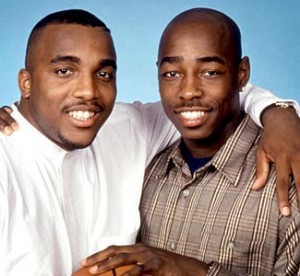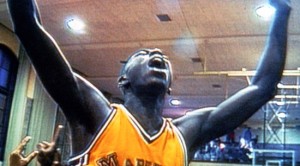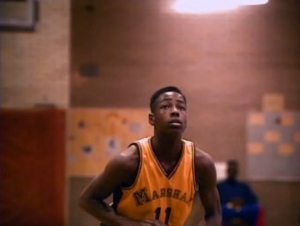Agency in Hoop Dreams
In Hoop Dreams, Arthur Agee and William Gates struggle with the dream to get out of the ghetto and make it to the NBA, but there is no one really in their lives to help them reach their dreams. It is all left up to their own agency in a lot of ways. However, in the documentary you can see that both Arthur and William have a hard time with larger outside forces that are outside of their control.
A few instances of agency for Arthur and William in the documentary are when the boys choose to attend St Joseph’s on partial scholarship. They make the 90-minute trip to and from school every morning so they can have a shot to make it out of the ghetto and in to the NBA like Isaiah Thomas did coming from the same school. However, William thrives more at the school than Arthur does by making Varsity is freshman year and finding a private donor that commits to paying the rest of his tuition at St Josephs. Both Arthur and William come in to St Joseph’s with very low education levels, but William works harder to keep up his grades and learn than Arthur does. Another case where William takes his future in his own hands and shows agency is when he decides, against the coach’s advise, to be a father to the baby he and his girlfriend have.
The two boys are also at the mercy of larger forces against their control. Arthur’s family is not able to pay the balance of the tuition at St. Joseph’s so he is forced to leave the school and go back to his neighborhood high school. The high school he attends does not have a strong basketball program, so when recruiting time comes around, the larger schools are not showing any interest in him. This is hard on Arthur because he wants so badly to make it, but he just does not have the chance to do so. William also struggles against larger forces when he injures his knee. The doctors tell him that he may have to sit out the year, and the look on his face shows the pain not only in his knee but also in knowing what that would do to his chances at the NBA.
I think that James depicts agency in this way because it shows that even though that no matter how much a person wants to have control over his own future and not matter how much he work to reach their goals, sometimes he just cannot triumph over the larger forces at work against him.






